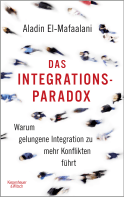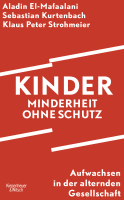This book gives an overview about racism, of the different understandings of terms, the history, and the present-day reality of this formative ideology of domination.
Recent developments and discourses are examined and catalogued. In this way, the book provides tools for future discussions.
How can it be that racism persists? How can its enormous power be explained, which has decisively shaped world society and most nations as they are today? How can racism remain so persistent even though human rights, democracy, and science are diametrically opposed to it?
How is racism perceived by those affected by it, how do victims deal with it? How can you tell if an action or statement is racist?
This book provides the answers.
Designated expert Aladin El-Mafaalani has been doing research on racism, discrimination, and social inequality for over a decade and in this book he summarizes the state of the discussion in an easy-to-understand way.
“No one has to justify having racist thoughts, unless they don’t do anything to change it.” - Aladin El-Mafaalani





